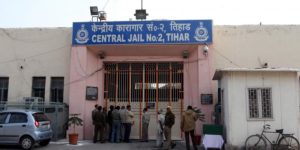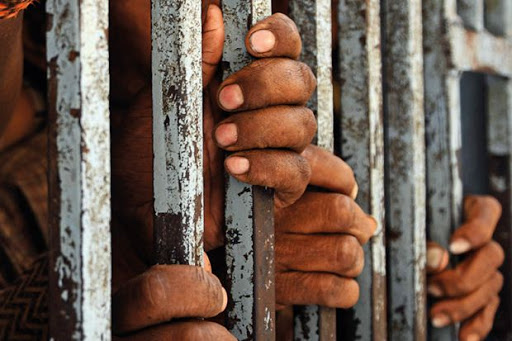In response to the COVID 19 pandemic, it is important to remember both the health of prisoners and their humanity. Prisoners often become the people that society forgets, both convicts and those awaiting trial. Most prisoners in India are undertrial, and often, they come from weaker sections of society. Those who are from dominant communities are treated better by the system and get proper legal aid.

When news of the COVID 19 came, the state forgot that the prisoners were not just cheap labour. The earliest news about prisoners was that they were manufacturing five thousand cloth masks per day, and sold at Rs. 6 per mask to the Home department.
On 19 March 2020, the Supreme Court addressed the risk that the COVID 19 pandemic posed directly to prisoners and gave orders to the states to address overcrowding. On 13 April 2020, it clarified that this would not mean that states would have to release prisoners, and if a prisoner was found suffering from COVID 19, that prisoner would not be released to the general population.
Preventing the spread in Prisons
Preventing the spread of COVID 19 in jails is an urgent task. It will affect the health of the prison population, the health of society at large and any semblance of order in our jails.
On 7 April 2020, the Karnataka State Legal Service Authority informed that 606 undertrial prisoners would be granted bail, and 230 convicts would be released on parole. Prisoners would also be relocated to different jails to ease crowding in the prisons.
Most prisoners in India are undertrial, and often, they come from weaker sections of society.
The spread of COVID 19 in a prison, would cause loss of life for prisoners and staff. The spread of COVID 19 can be reduced if people take proper action. Overcrowded prisons can easily become a hotspot where the disease can quickly proliferate.
The disease requires efficient identification and followup action, which is hard in a prison. Explantations are not usually given to prisoners. This can lead to panic, as was seen in Dum Dum Central Jail in West Bengal a few weeks back when a riot broke out following a scare of COVID 19 breaking out. The prisoners were suddenly cut off from any family contact, and this caused a panic. This panic led to a riot.
Riots in prisons are erupting across the world. Earlier this week, in Tuminting Prison at Manado Indonesia, a riot broke out when rumours of a prison guard having COVID 19 spread. Similar stories have also been reported in Iran, Italy, Thailand, the United States and other countries from across the world. Activists in all of these countries have been calling for humanitarian interventions, where prisoners are given proper protection, appropriate medical protocol and care, and are given proper information. Prisons are routinely overcrowded, and access to medical care is sometimes denied to them as part of the punishment. This makes prisoners a very vulnerable population. This hurts people awaiting trial and people being convicted alike. This hurts people accused of all crimes, from petty to egregious. Losing one’s freedoms was officially supposed to be the punishment, but exposing people to such risk is just cruelty.
Often programmes and actions regarding prisoners forget that they are human beings, and can be implemented harshly. Good programmes are important, as is humane treatment. This is often forgotten.
To protect the population from a COVID 19 spread, there is a need to implement awareness programmes for both staff and inmates regarding the methods of prevention spread of COVID 19. Decongestion, regular access to soap at high traffic locations, regular cleaning of bathrooms, and protocols to prevent the disease from entering into the prison population is very important.
Almost 40% of the prison population in India is in their twenties, which is when people are very likely to carry the disease without knowing. One in eight prisoners is over 50 when mortality rates begin to climb sharply. If a COVID 19 outbreak gets into the prison population, hundreds to thousands of lives could be at risk.
Good programmes need to be implemented humanely. Prisoners are human beings, and any programme that forgets their humanity will fail in preventing COVID 19 spread.





























